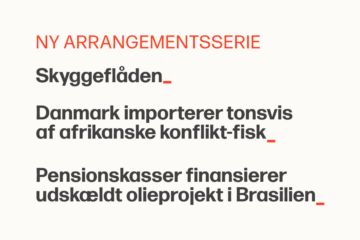Remembering Uffe
Half a year has passed since the death of Uffe Ellemann-Jensen. In this essay, lawyer and friend of Uffe Ellemann-Jensen Mark Medish pauses to reflect on Uffe Ellemann-Jensen’s legacy for Denmark, Europe, and the wider world.
By Mark Medish
My memories of Uffe combine a professional view as a former U.S. national security official and a personal view because Uffe was a friend over many years. Uffe exuded integrity and groundedness. His combination of moral clarity, pragmatism and joie de vivre was a rare quality, particularly in the increasingly harsh world of politics.
As Denmark prepares to form a new government, Uffe’s model should be an inspiration for those who seek high office. He was a statesman, a Great Dane and a true mensch.
I first got to know Uffe over twenty years ago — at a conference in Moscow, of all places — and we stayed close even after I left government. We had an informal tradition of “summit meetings” to discuss global affairs, usually at his home on my regular visits to Copenhagen. His faithful dog Oskar often presided.
Uffe liked to call me “Gump” because of the name my international law firm shared with the famous 1994 Tom Hanks movie Forrest Gump.
We last met in May over a dinner of his favorite Jagger burgers and French fries. Uffe was in obvious pain from advanced disease but he never complained.
Several things drew us together. As a Danish-American, I was familiar with Uffe’s political career and his long service as foreign minister. We were a half-generation apart, though Uffe was the same age as my brother, born during the Nazi Occupation of Denmark. Like Uffe, my mother had worked in military intelligence, and later as a Danish diplomat based in Washington, where I grew up.
I was a former national security adviser to President Bill Clinton and Vice President Al Gore. The parallel between Gore and Uffe was not lost on us. The two men’s paths to the top post of their respective governments, about ten years apart, had seemed assured but never reached the destination. Perhaps a few “hanging chads” in Florida in 2000 and a few votes in the Faroe Islands made the difference. As Forrest Gump said, “my mama always said you’ve got to put the past behind you before you can move on.” Uffe moved on.
Uffe was always a realist about the security threats that Denmark faced. He used to remind me of the brief Soviet occupation of Bornholm after WW2 and was a fierce defender of freedom everywhere and especially around the Baltic region. He understood that, despite the appearance of stability, the long Cold War was not a game and freedom had to be defended.
We did not always agree on policies. Uffe was understandably proud of Denmark’s military contribution to America’s Gulf Wars — and indeed there were some notable special operations successes. I was a sharp critic of Bush and Cheney’s wars and often warned my Danish friends not to get sucked into the misbegotten interventions in Afghanistan and Iraq.
When we first met in Moscow back in 2001, Vladimir Putin had just come to power. It was a time of open-minded questioning of what direction Russia would take under its new leader. Things were not predetermined, but the years would reveal a sharp return to authoritarianism and militarism. Regarding Russia and other challenging countries, Uffe worked for the best but prepared for the worst.
Uffe had an impeccable sense of what mattered. In 2015 he knew that Putin’s assault on Ukraine spelled long-term peril for the West. About Brexit, he said “Europe without the UK will be poorer and weaker – but it will be much harder on the British.” He also abhorred Donald Trump and what his populism and isolationism would do to America, Denmark’s greatest ally.
This spring, at our last summit, Uffe expressed deep concern about the handling of the FE scandal and its implications for decency and the rule of law in Denmark — and for security cooperation with the U.S.
I will always remember Uffe as a man in full — he used his back bone and his funny bone in a life well lived.
His final message to me, on June 13, was from Rigshospitalet. He said he would stay there “probably the rest of the week.” As Forrest Gump observed, “Mama always said, dying was a part of life. I sure wish it wasn’t.” I miss Uffe.
Mark Medish is a lawyer in Washington. He worked for President Bill Clinton in The White House and at the U.S. Treasury Department.


